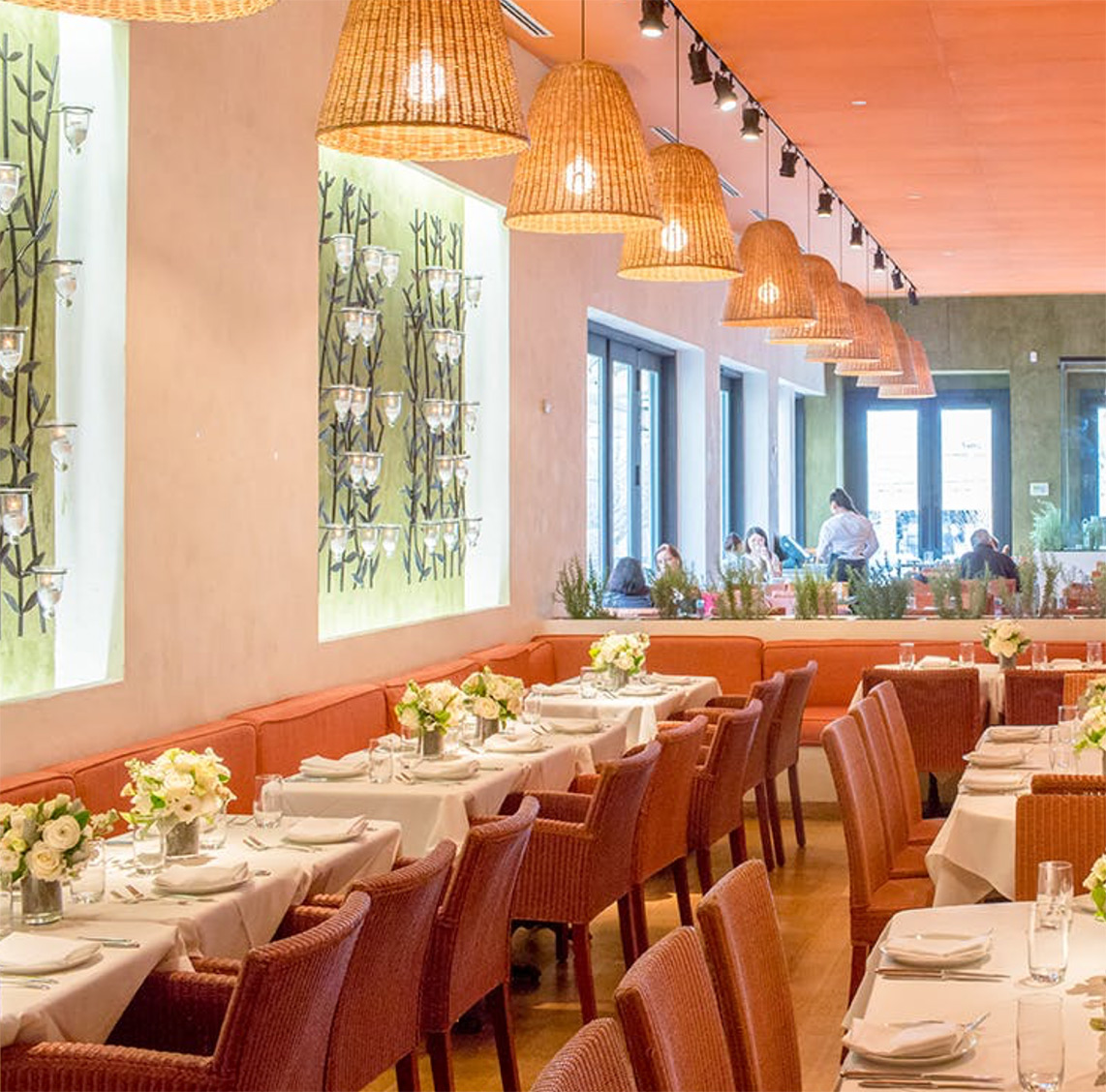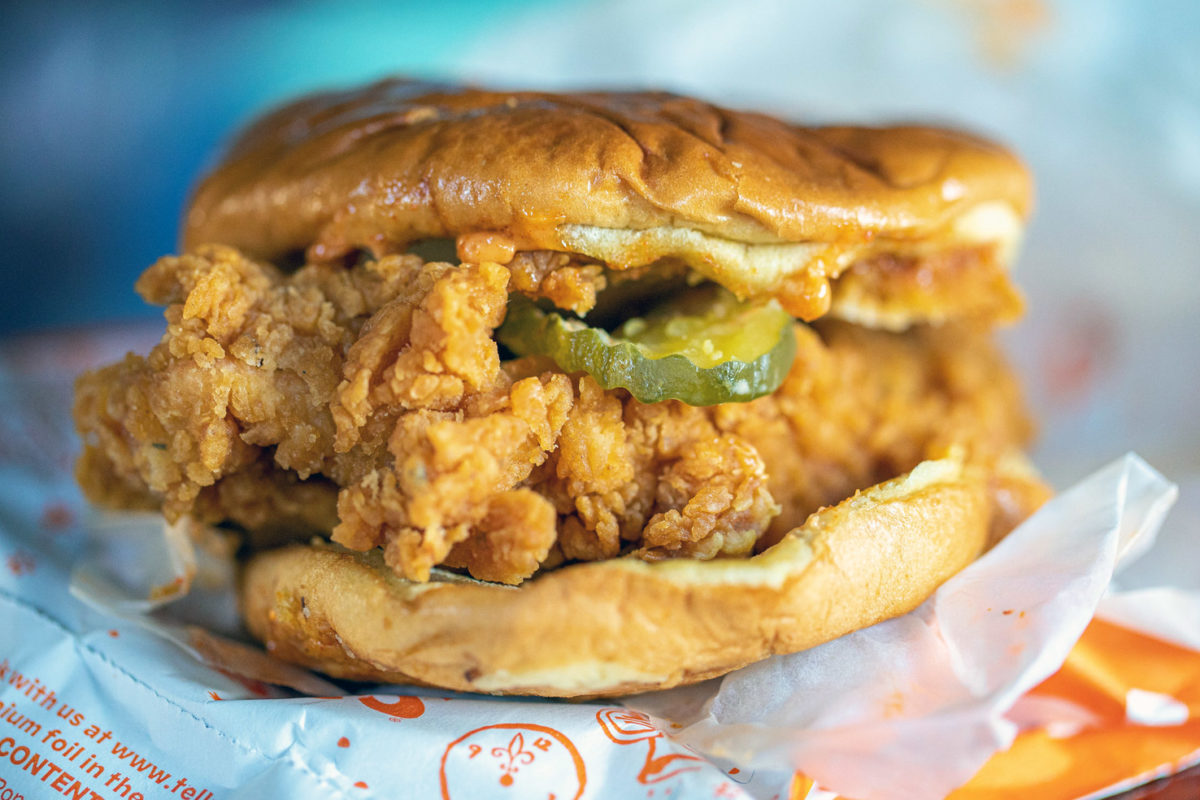The Fig & Olive restaurant chain is asking bankruptcy court to allow it to drastically cut lease payments and permanently close three of its nine restaurants, including the Westchester location.
Luxury Dining Group of Manhattan and 10 Fig & Olive affiliates filed Chapter 11 petitions on July 3 in U.S. Bankruptcy Court, White Plains. The actions were consolidated under Fig & Olive Scarsdale LLC, the company that operates Fig & Olive in Vernon Hills Shopping Center in Eastchester.
 The restaurant chain had $26.3 million in assets as of May 24, according to a consolidated balance sheet, and $17 million in liabilities.
The restaurant chain had $26.3 million in assets as of May 24, according to a consolidated balance sheet, and $17 million in liabilities.
Its intention, CEO Alexis Blair stated in a court filing, is to “reorganize and not liquidate.”
Fig & Olive, founded in 2003 by Laurent Halasz, is themed as an upscale, casual French Mediterranean eatery. Investor Guillaume Fonkenell contributed capital over the years, Blair stated, and in 2017 he became the majority owner.
Fig & Olive has restaurants in and around New York City, Chicago, Houston, Los Angeles and Washington, D.C.
For five years, according to Blair, Fig & Olive has been “plagued” by lawsuits, that she characterized as “frivolous employee” actions, and by negative news.
In 2015, news coverage of a salmonella outbreak at the Washington and Melrose Place, Los Angeles stores “triggered a downfall in revenue.”
Fonkenell got more involved, management was changed last year, and “the organization saw its best performance,” according to Blair.
Then the COVID-19 pandemic forced Fig & Olive to close the restaurants. More than 700 employees were laid off or furloughed, and only 34 remain on staff at reduced salaries. Elsewhere in her declaration, she stated that 87 employees are currently active and 448 are furloughed.
The first prong of reorganization, according to Blair, is to “shed” leases, including the Manhattan headquarters and three of the nine restaurants that have been “historically unprofitable.”
Besides Eastchester, it has asked the court for permission to immediately reject leases on Lexington Avenue in Manhattan and the Houston restaurant.
The Eastchester restaurant has estimated assets and liabilities between $100,000 and $500,000, according to the Fig & Olive Scarsdale petition. The largest unsecured claims are $43,673 by the landlord, listed as disputed, and $24,274 to New York state for sales taxes.
The second prong is to get court permission to pay only 25% on the remaining leases.
“The debtors simply cannot generate sufficient revenues to pay their full rent obligations for the foreseeable future,” Blair stated, “due to the COVID-19 situation.”
The third prong is court approval for Luxury Dining Group, the parent company, to borrow up to $1.8 million from Fonkenell.
Kompany LLC, the landlord for Melrose Place, Los Angeles, pushed back in a July 8 court filing.
Fig & Olive claims it owes the landlord $177,777, Kompany said, but nearly $250,000 is actually past due.
Though California restaurants have been allowed to continue with take-out and delivery services, Fig & Olive “made no efforts to continue its operations,” Kompany states its objections.
Given the economic uncertainty of the COVID-19 pandemic, the landlord argued that Fig & Olive “cannot establish a clear plan on their continued operations and ultimately their reorganization.”
Kompany said it “should not continue to suffer at the hands of the debtors for an additional 60 days while the debtors guess how to best move forward with Chapter 11.”
The Melrose Place lease is set to expire at the end of July. Kompany proposes that Fig & Olive “simply move any personal property out in 15 days.”
Fig & Olive is represented by Manhattan attorney Robert L. Rattet.





















